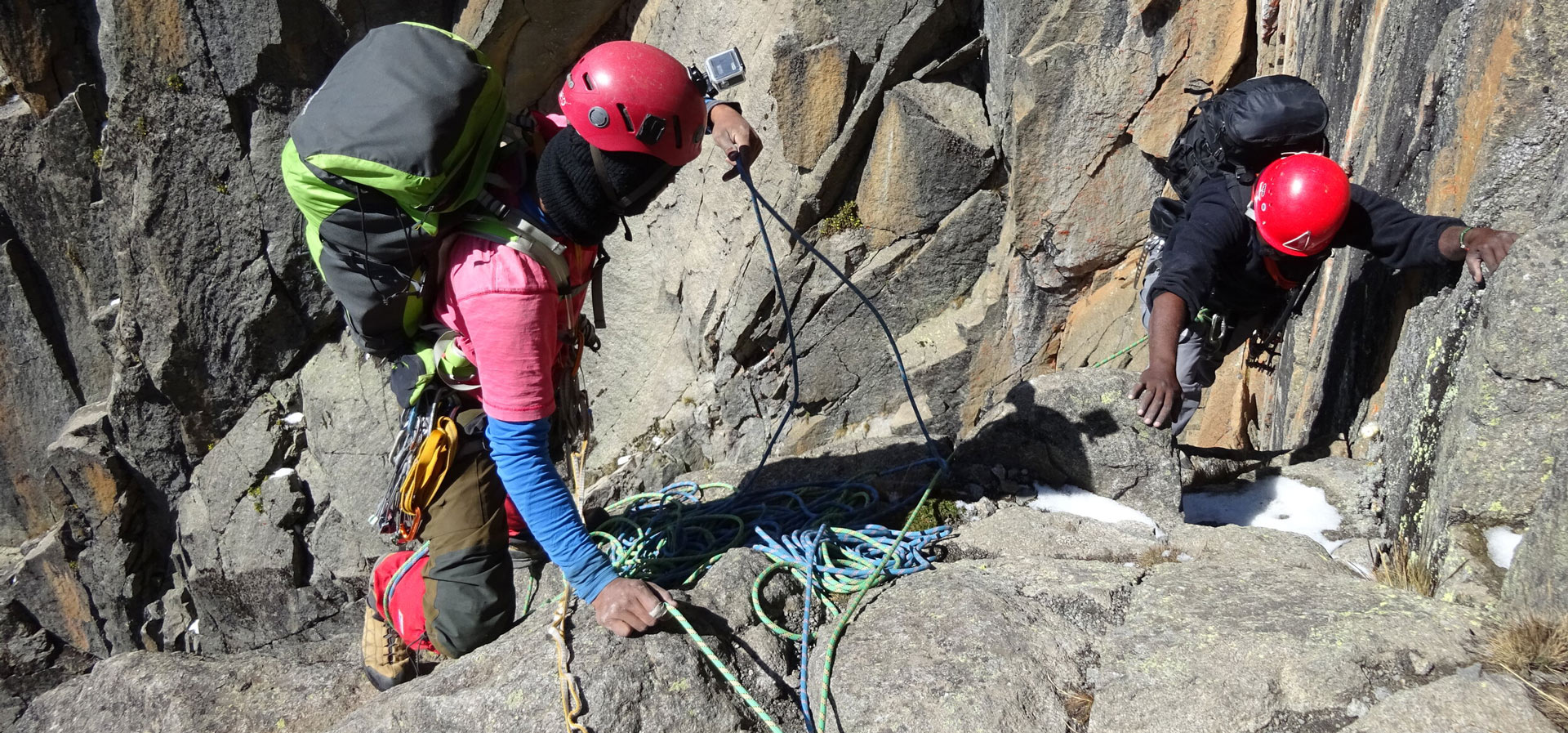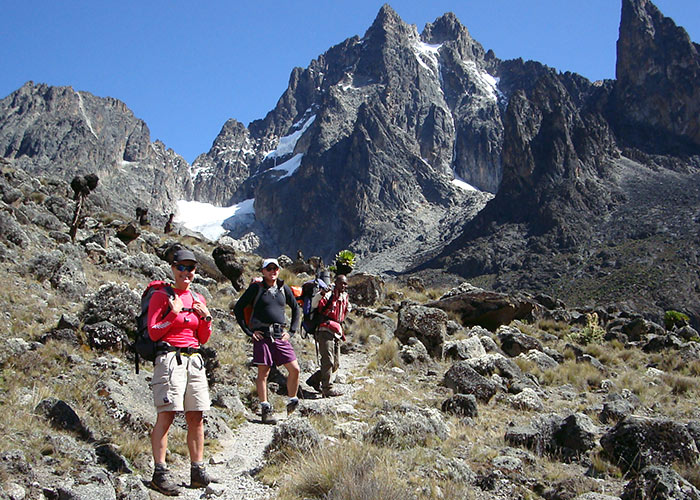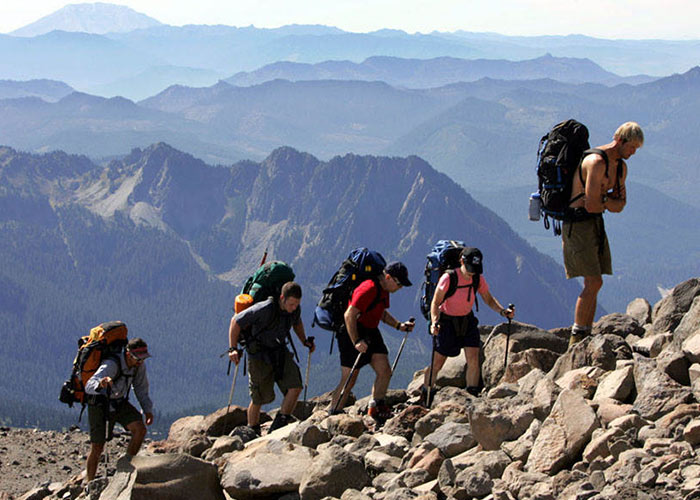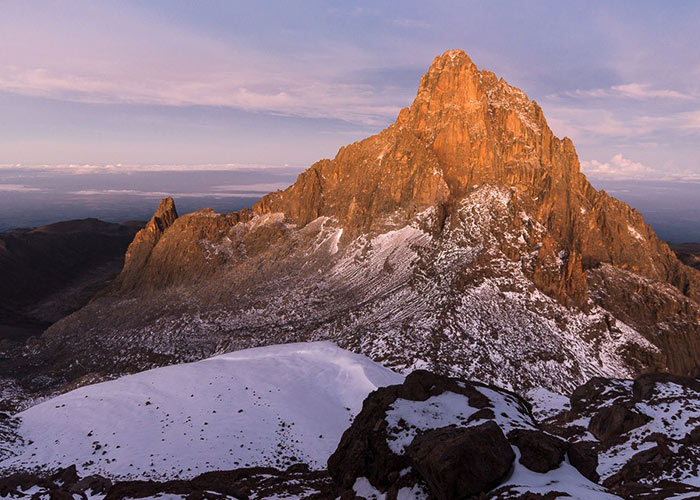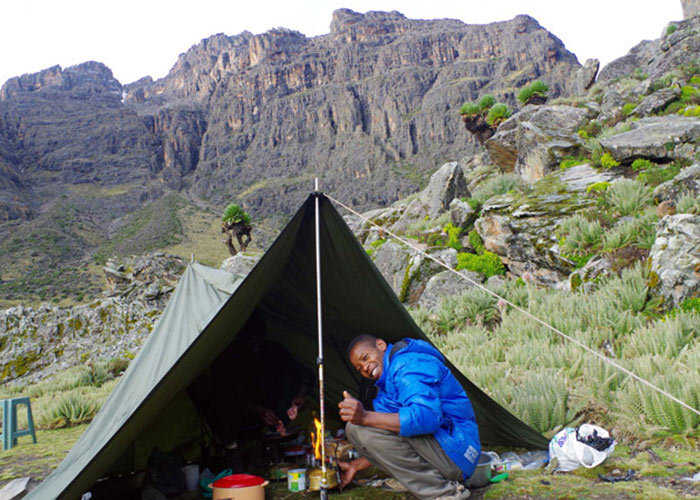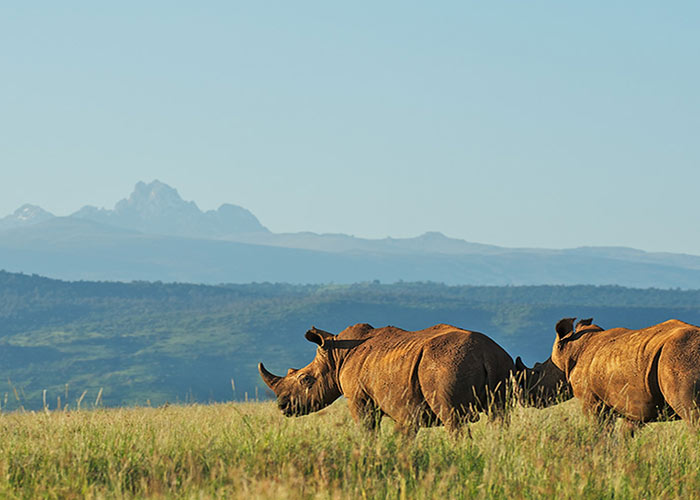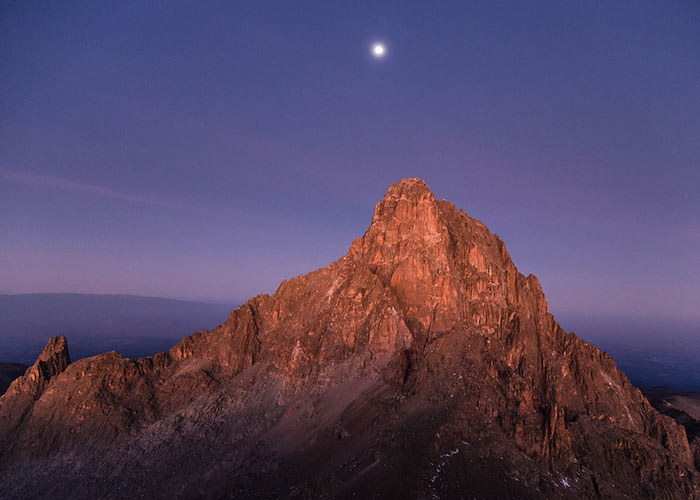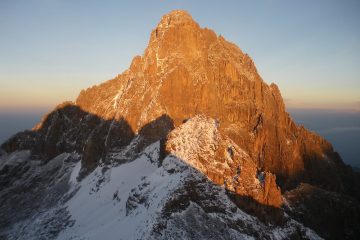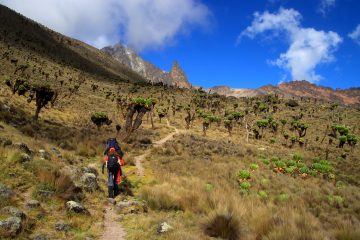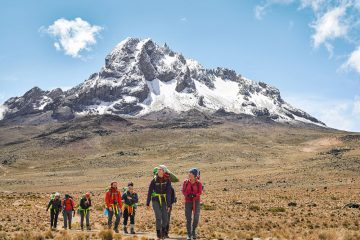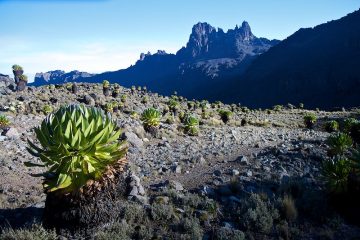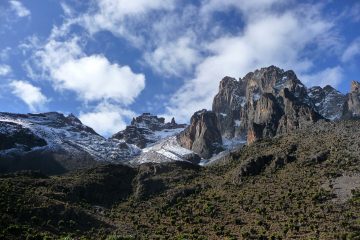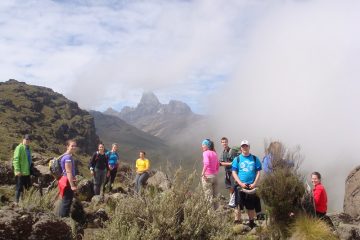This is a packing list of equipment that is suggested for a climb of Mount Kenya. Because temperatures might change and it is simpler to modify, it is always better to have multiple thinner layers than fewer larger ones.
This Mount Kenya packing list is a good starting point for what you’ll need on the mountain, but it’s not required to be followed to the letter.
Mount Kenya is known for its unpredictability in terms of weather and chilly, relentless winds that vary regularly throughout the journey. Typically, communal equipment (tents, food, cutlery, and so forth) is supplied. It is your responsibility to bring the personal items listed below. Missing items may usually be hired, so check with your team leader before heading off.
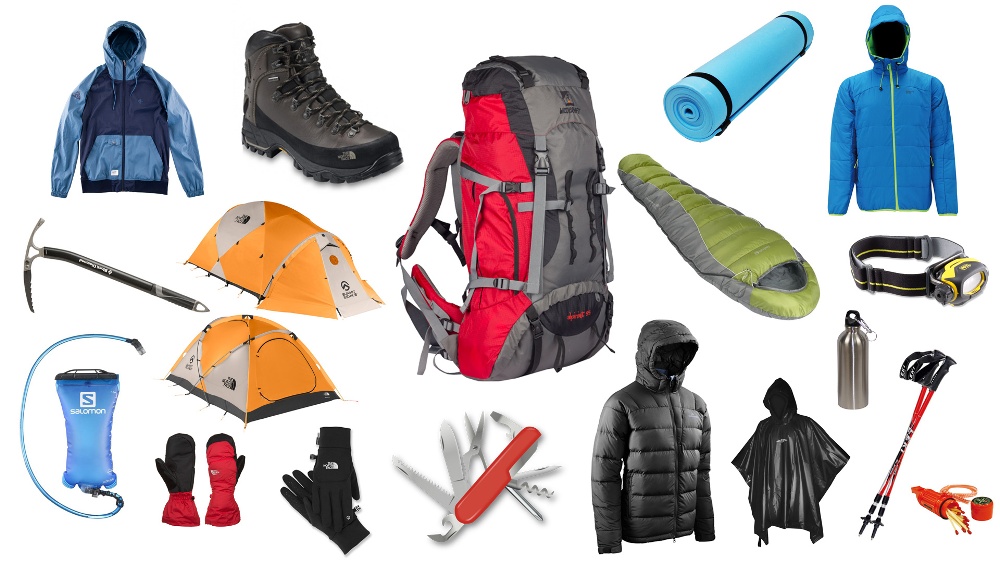 To climb Mount Kenya successfully, you’ll need equipment that keeps you warm, dry, sheltered from the sun/rain, and comfortable in the many situations you’ll encounter. Here’s a quick rundown of things you should consider:
To climb Mount Kenya successfully, you’ll need equipment that keeps you warm, dry, sheltered from the sun/rain, and comfortable in the many situations you’ll encounter. Here’s a quick rundown of things you should consider:
Head Gear
1 – Brimmed Hat, for sun protection
1 – Knit Hat, for warmth
1 – Balaclava, Scurf or Buff, for face coverage (optional)
Baggage and Sleeping
1 – Sleeping Bag, warm, four seasons
1 – Sleeping Mats (Optional), usually provided
1 – Duffle Bag, Hiking bag, Holdall, 50-90L, for porters to carry
1 – Waterproof day pack with rain cover, 30-35L, for you to carry personal gear
1 – Kit storage bag to leave items not needed for the trek at the hotel
Handware
1 – Gloves or mittens, warm (waterproof)
1 – Gloves, thin and wind proof
Footware
1 – Hiking Boots, warm, waterproof, broken-in
1 – Gym Shoes or Sandals, to wear at camp (optional)
4 – Hiking Socks, wool or synthetic
1 – Thick Socks, wool for nights if very cold (optional)
1 – Gaiters (optional)
1 – Hand and foot warmers (optional)
Accessories
1 – Sunglasses with UV-filter lenses or Ski Goggles
2 – Water Bottle (Nalgene, 1 Liter) or
1 – Water Bladder (Camelback type, 3 liters)
1 – Pee Bottle (1.5 Liter), to avoid leaving tent at night (Optional)
2 – Trekking Poles, collapsible (highly recommended)
1 – Head lamp, with extra batteries Stuff sacks, dry bags or plastic bags, various sizes, to keep gear dry and separate. Games/cards, whistle, pen
notebook reading material.
Paperwork
– Passport with Kenyan Tourist Visa (Kenyan Tourist visas can be purchased online before arrival)
– Air Travel Documents
– Debit/Credit Card (recommended for eventualities only)
– Travel Insurance Documents (Where applicable)
– Vaccination certificates (Yellow Fever, if visiting a risk zone prior to entering Kenya)
– Cash for personal items and tips
– Emergency contacts
Technical Clothing
2 – Long Sleeve Shirt, moisture-wicking fabric
1 – Short Sleeve Shirt, moisture-wicking fabric
1 – Fleece top for evenings at camp
1 – Soft Jacket, or soft-shell
1 – Hard-shell, Waterproof Jacket, breathable with hood
1 – Down jacket, Insulated Jacket
1 – Thermal Base layer, Long-johns, moisture-wicking fabric
3 – Sport Bra (women)
1 – Lightweight poncho
1 – Waterproof Pants, breathable (side zipper recommended)
1 – Hiking Pant
1 – Fleece Pants for evenings at camp
1 – Shorts (optional)
– Underwear, moisture-wicking fabric
Hygiene, Food and Toiletries
– Toilet Paper
– Toothbrush & toothpaste
– Washcloth
– Soap
– Quick Dry Travel towel
– Prescriptions
– Sunscreen (Factor 30+)
– Insect Repellent
– Lip Balm
– First Aid Kit
– Hand Sanitizer
– Wet Wipes
– Snacks, lightweight, high calorie (optional)
– Electrolytes, powder or tablets (optional)
– Anti-Malaria Tablets
– Pain killers (Ibuprofen and Paracetamol)
– Diamox (acetazolamide) in case you want to take them
– Zinc oxide tape and small scissors
– Blister pads
– Loperamide / Immodium diarrhea tablets
– Dioralyte sachets or similar rehydration packs
– Throat lozenges
– Iodine water purification tablets
Electronics and Gadgets (Optional)
– Camera, with extra batteries
– Portable Solar Chargers
– Power Banks
– Unlocked Mobile Phone
– Amazon Kindle
– Tablet
– Device with an Alarm
– iPod/Mp3 player
– Travel Adapters,
– Shaving kits
Note:
- Any containers that are closed at low altitudes (toothpaste, sun cream, contact lens solution, etc.) will expand as you climb higher, so remove the pressure each night to avoid them bursting in your bag.
- Porters are only allowed to carry one duffle or hiking bag weighing no more than 15kg (35 pounds), while you carry your day pack, so don’t overpack.
- Make sure you have enough of casual clothing for your days in Nairobi. These items will be safely stored at the hotel while you are on your Trek.
- There are no hard rules about cleanliness, food, or amenities, so bring anything you like. The guides will have some first aid supplies ready for the squad.

